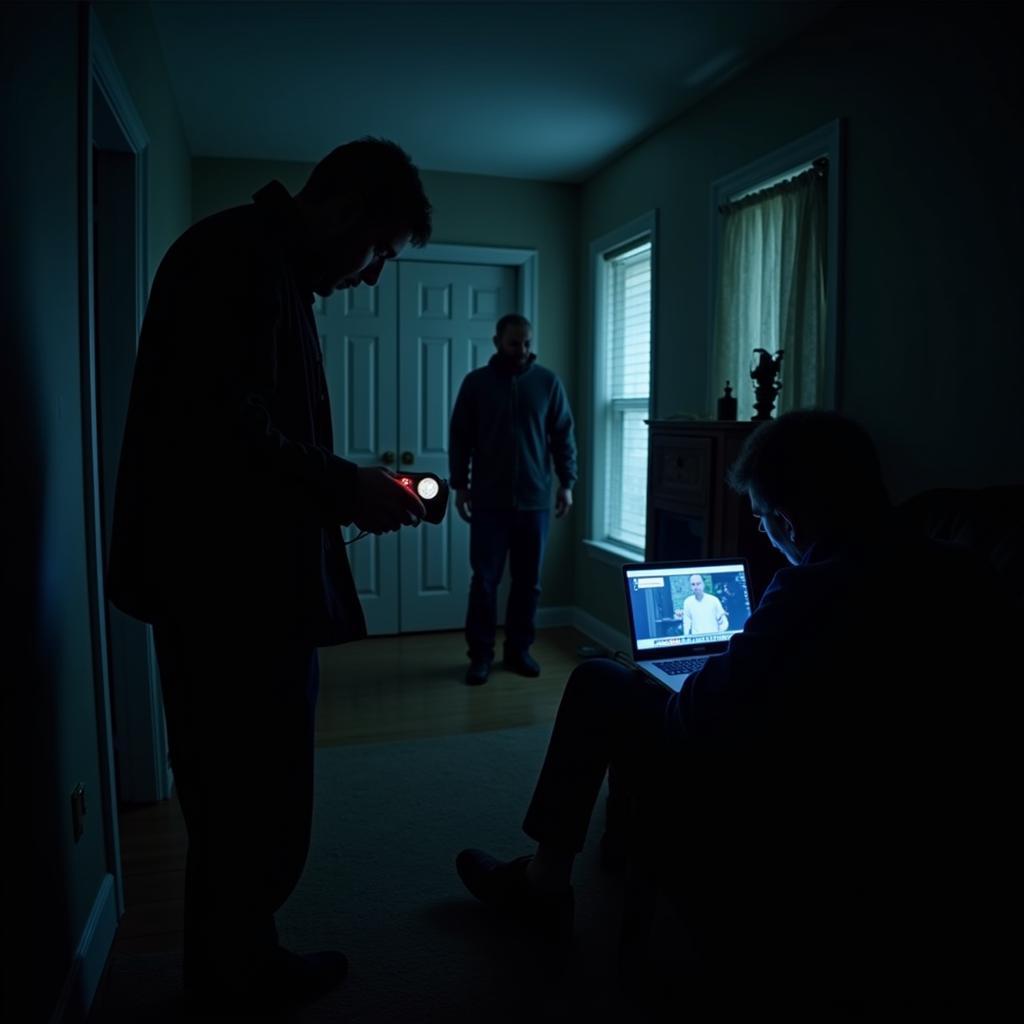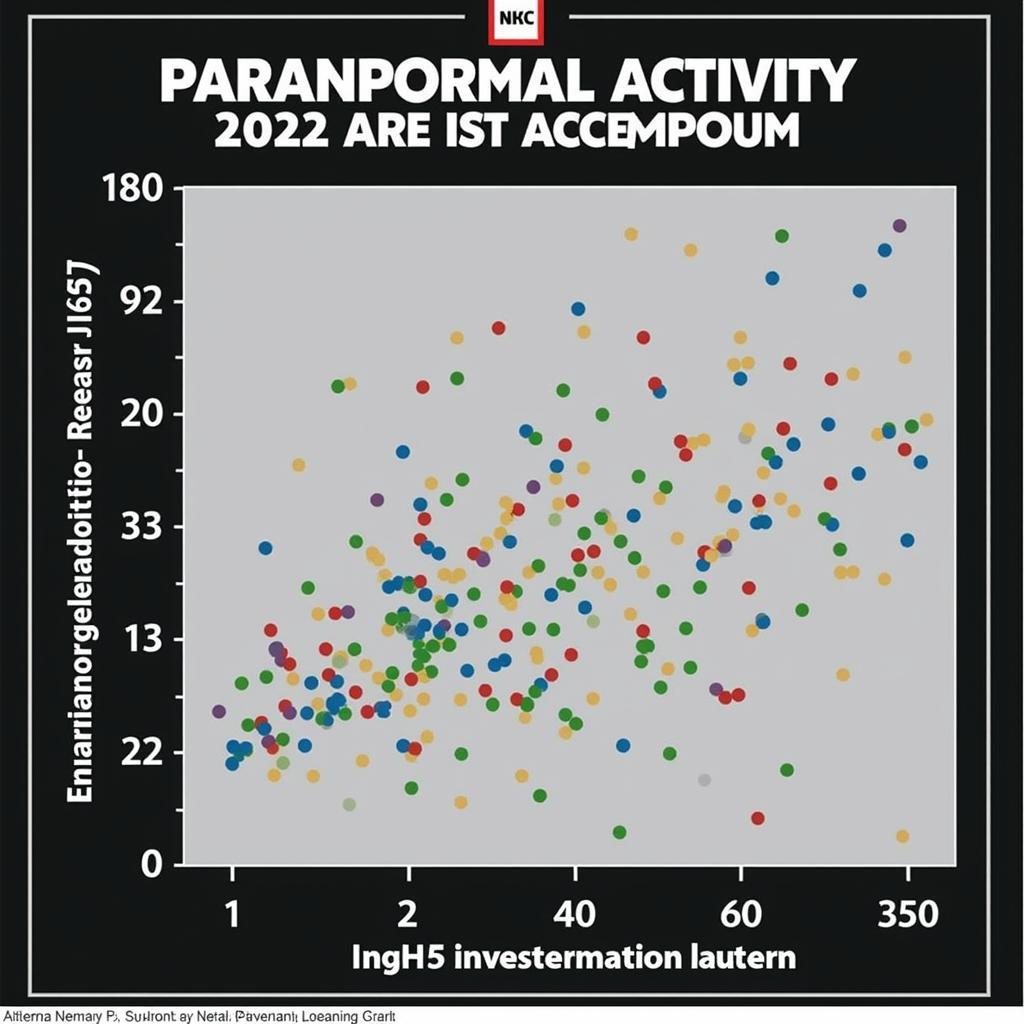Explanatory Research Questions are the cornerstone of understanding the “why” behind phenomena. In the realm of paranormal research, where unexplained occurrences abound, crafting effective explanatory research questions is crucial for shedding light on the mysteries that captivate us. This article delves into the intricacies of explanatory research questions, providing a comprehensive guide to formulating them, applying them in paranormal investigations, and maximizing their potential for uncovering the truth behind the unknown.
 Explanatory Research Questions in Paranormal Investigation
Explanatory Research Questions in Paranormal Investigation
What Defines an Explanatory Research Question?
Explanatory research questions go beyond simple description and delve into the causal relationships between variables. They aim to uncover why something happens, not just what happens. This is particularly relevant in paranormal research, where observed phenomena often lack clear explanations. Think of a ghostly apparition – an explanatory research question wouldn’t just document its appearance, but would seek to understand the underlying reasons for its manifestation. Is it tied to a specific historical event? Are there environmental factors at play?
After formulating your initial research question, you might find you need more specific information in order to properly test your hypothesis. Perhaps you want to understand what is a research objective. Having clear objectives can strengthen your research approach.
Formulating Effective Explanatory Research Questions for Paranormal Investigations
Developing robust explanatory research questions is essential for a successful paranormal investigation. Consider these key points:
- Focus on a specific phenomenon: Don’t try to explain everything at once. Narrow your focus to a particular event or type of activity, such as poltergeist activity in a specific location or electronic voice phenomena (EVP) captured during a séance.
- Ground your questions in existing knowledge: While exploring the unknown, it’s important to acknowledge existing theories and research. For example, if investigating alleged hauntings, consider psychological factors, environmental influences, and historical context.
- Use clear and concise language: Avoid ambiguity. Your questions should be easily understood and leave no room for misinterpretation. For instance, instead of asking “Why are there ghosts?”, ask “What factors contribute to the perceived experience of ghostly apparitions in this location?”.
- Ensure testability: Your questions should lead to hypotheses that can be tested through observation, experimentation, or data analysis. This might involve collecting EVP recordings, measuring electromagnetic fields, or analyzing historical records.
Developing effective research interview questions is also crucial for gathering anecdotal evidence and personal experiences related to your chosen phenomena. This can help guide further investigation and refine your research approach.
Applying Explanatory Research in Paranormal Investigations
Once formulated, explanatory research questions guide the entire investigation process. They dictate the type of data collected, the methods employed, and the analysis performed. For example, if investigating a supposed haunted location, an explanatory question like “How do environmental factors influence the reported paranormal activity?” might lead to investigations of electromagnetic fields, infrasound, and temperature fluctuations.
You can also draw inspiration from other fields of research. Exploring business research questions may offer insights into methodical data collection and analysis techniques, applicable to the meticulous documentation required in paranormal investigations.
Analyzing Data and Drawing Conclusions
The data collected during an investigation should be rigorously analyzed to determine if it supports or refutes the hypotheses derived from the explanatory research questions. This involves identifying patterns, correlations, and potential causal links. It’s important to remain objective and avoid drawing premature conclusions. Even if the data doesn’t support the initial hypotheses, it can still provide valuable insights and lead to new research questions. Remember, negative results are still results.
 Data Analysis in Paranormal Explanatory Research
Data Analysis in Paranormal Explanatory Research
Dr. Evelyn Reed, a prominent researcher in parapsychology, emphasizes, “The key to unlocking the mysteries of the paranormal lies in asking the right questions. Explanatory research questions provide the roadmap for navigating the unknown and transforming anecdotal evidence into scientific understanding.” Another expert, Dr. Thomas Ashton, adds, “It’s crucial to approach paranormal research with a skeptical yet open mind, allowing the data to guide the investigation rather than preconceived notions.”
Conclusion
Explanatory research questions are indispensable tools for navigating the complexities of the paranormal world. By carefully formulating and applying these questions, we can move beyond simple observation and begin to unravel the causal relationships that underlie unexplained phenomena. Through rigorous investigation and objective analysis, we can gain a deeper understanding of the world around us and shed light on the mysteries that have captivated humanity for centuries. Don’t forget to explore example research questions for qualitative research for further inspiration in shaping your inquiries.
FAQ
- What is the difference between descriptive and explanatory research questions?
- How can I ensure my explanatory research questions are testable?
- What are some common pitfalls to avoid when formulating explanatory research questions?
- How can I use statistical analysis to answer explanatory research questions in paranormal research?
- What are some examples of successful explanatory research studies in the paranormal field?
- Where can I find resources to help me develop strong explanatory research questions for my own investigations?
- How can I present the findings of my explanatory research in a clear and compelling way?
Need help with your Paranormal Research? Contact us! Phone: 0904826292, Email: research@gmail.com or visit us at No. 31, Alley 142/7, P. Phú Viên, Bồ Đề, Long Biên, Hà Nội, Việt Nam. We offer 24/7 support.